#national yorkshire pudding day
Explore tagged Tumblr posts
Text

On this October 13, 2024, Cookie wishes you a scrumptious national Yorkshire pudding day! (Cookie does not know where Yorkshire is, but she enjoys the concept of pudding)
#cats#cat#cookie#cookie wishes you#cute cats#2024#date#animals#cookiewishesyou#national Yorkshire pudding day#holiday#yorkshire#yorkshire pudding#cooking#food#pudding
50 notes
·
View notes
Text

😋 Happy National Yorkshire Pudding Day! 😋
7 notes
·
View notes
Text
10/13/2024 is Grandparents' Day 🇩🇪, National No Bra Day 🇺🇸, National Train Your Brain Day 🇺🇸, National Yorkshire Pudding Day 🇺🇸, Navy Birthday 🇺🇸, Clergy Appreciation Day 🇺🇸, International Day for Disaster Reduction 🇺🇳

#grandparents' day#national no bra day#national train your brain day#national yorkshire pudding day#navy birthday#clergy appreciation day#international day for disaster reduction
2 notes
·
View notes
Text






Today is 13th of October.
Today is World Egg Day, National Yorkshire Pudding Day, National No Bra Day.
0 notes
Text

Hey #Lovers❤️🔥! Celebrate 🎉 National Yorkshire Pudding Day 🥳 on October 13th with us at 🌺RAW1111.COM🥑. Discover vegan twists on this classic treat! #GVWU Go Vegan With Us 🌱💚
#national day#yorkshire pudding#english#traditional#ancient history#history#educate yourself#education#blogger#blogging#raw vegan#fruits#vegan food#vegan lifestyle#vegan#nature#vegetables#realnessalwayswins#gvwu#plantbased
1 note
·
View note
Text

Analysis of Norton's dish: Roast Beef with Pudding
The pudding is likely Yorkshire Pudding/Plum Pudding
Roast beef with Yorkshire Pudding are traditional dishes in Great Britain, especially in Northern England
Eaten by a variety of people, from the lower classes to the higher classes, and could even be found on the royal family's menu. Commonly served on Christmas day to workhouses/poorhouses.

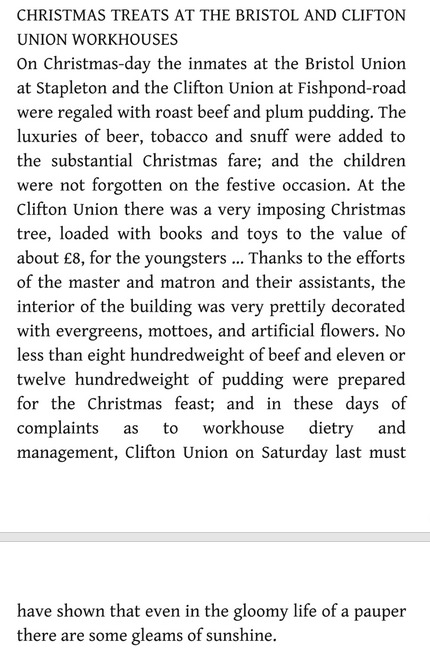
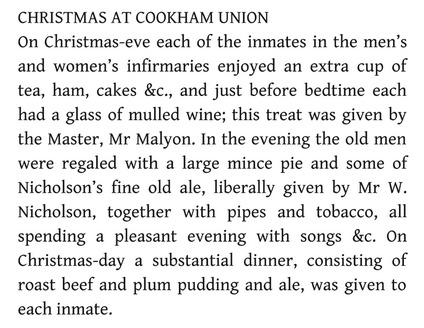

“roast beef served with plum pudding is the most evocative of past traditions of hospitality. It was once Britain’s prime celebration dish and a potent symbol of the nation’s character and cohesiveness.”
Roast Beef
The history of roast beef dates back to King Henry VII in 1485. Henry’s bodyguards (Yeoman of the Guard) received part of their salary in chunks of beef. This practice took place up until the 1800s and allegedly they earned the title ‘beef-eaters’. The story goes that King Henry’s guards started the Sunday roast beef tradition by cooking the meat (usually fillet, sirloin or shoulder) in the morning before going to Mass. The practice became a habit during the 19th century. Women would leave the meat to cook in their village baker’s oven, which closed on Sunday, and pick it up when back from church, perfectly roasted.
Eating beef was reinforced by a tradition outlined in William Kitchiner’s 1871 volume “Apicius Redivivus: Or, The Cook’s Oracle”. In his book, the author recommends eating about 3 kilos of meat per week to stay healthy. This underlined the central role that meat played in the British diet and described the practice of cooking beef sirloin for at least four hours over a spit. Sunday was the one day of the week when people had four hours to spare to roast beef. Fortunately a massive lump of meat could feed the family. They would then use it again in stews, pies and as cold cuts for the rest of the week. As the cost of meat and coal began to plummet working people continued the habit of roasting beef every Sunday.

Yorkshire Pudding
Traditionally, the word “pudding” referred to homely and rustic desserts that were commonly eaten by the lower classes. These could be either sweet or salty. Pudding dishes are mainly made with flour and have a cake-like consistency. But originally, pudding was a meat based, sausage-like food in Britain (ex: black and white puddings). However by the late 1700s, the contemporary puddings were no longer meat based and this change incidentally coincided with the first published mention of the batter pudding.
The Yorkshire Pudding is a baked pudding made from a batter of eggs, flour and milk or water. It has become a common British side dish which is versatile and can be served in many different ways – although mainly recognized as an accompaniment to a roast dinner.
It has been suggested the pudding was given the name “Yorkshire” due to the region’s association with coal and the high temperatures this produced that helped to make crispy batter.
The 1st recorded Yorkshire Pudding recipe appeared in a 1737 book titled "The Whole Duty of a Woman"and was listed as "Dripping Pudding". Wheat flour had come into common use for making cakes and puddings, and cooks in the north of England had begun baking batter puddings while their meat roasted to make use of the fat that dropped in the dripping pan. Batter was placed in a hot pan over the fire with a bit of butter, then placed under a shoulder of mutton in the oven in place of a dripping pan to collect the fat.
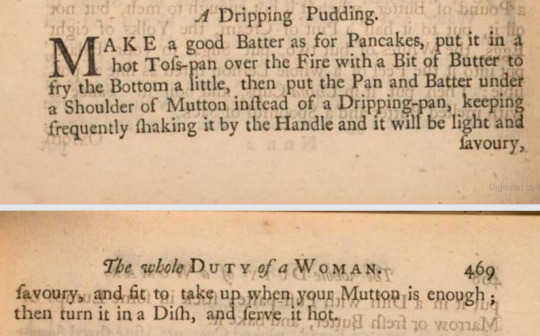
The next recorded recipe launched the pudding from a local delicacy to Britain's favorite dish. It appeared in "The Art of Cookery, Made Plain and Easy" by Hannah Glasse in 1747. Glasse was one of the most famous food writers of the time, and the popularity of her book spread the word of the Yorkshire pudding. This distinguished the light and crispy nature of the batter puddings made in this region from batter puddings created in other parts of England. Back then, the puddings were flatter than they are served today and would be served as a first course filled with thick gravy to help to suppress the diner’s appetite for expensive meat with cheap, plentiful ingredients. The main course of meat and vegetables would traditionally be served with a white sauce, as the gravy used up for the pudding. Poorer households couldn’t afford meat, and would use dripping, flour, eggs and milk to make puddings which would be served with gravy as the only course. Then there was another recipe by Mrs. Beeton, another of Britain's famous food writers of the 19th century, but her 1866 recipe omitted one of the fundamental rules for making Yorkshire pudding: the need for the hottest oven possible. The recipe was also erroneous in instructing the cook to bake the pudding for an hour before placing it under the meat. Yorkshire folk supposedly blamed her error on her southern origins.
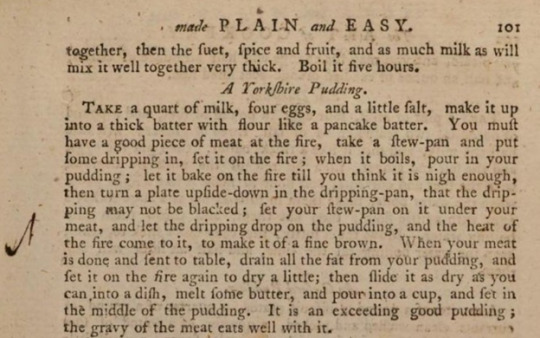
The point of traditional Yorkshire pudding was identified in its previous name, dripping pudding. The batter was placed in a large pan into which had been allowed to drip the fat and juices of meat roasting on a spit over the fire. Once the pan had been heated in the fire and the fat was bubbling, the batter was poured into it and placed under the roasting meat as it continued to turn on the spit, thus catching all the remaining drippings. Meat was very expensive through much of the eighteenth century, and none of it was wasted, even the drippings produced when it was roasted. The fat from the meat drippings provided crucially needed calories, particularly for men doing heavy manual labor. The drippings also imparted a rich flavor to the Yorkshire pudding, and the high heat needed to roast meat was necessary to ensure the pudding would rise and had a light and crispy texture.
Traditional Yorkshire pudding was not served with the roasted meat, it was served before, as an appetizer or starter course. The pudding was cut into smaller pieces which were served drenched with the gravy made from the roasted meat. It is generally believed that this was done to take the edge off the diners’ appetites so that they would be satisfied with the small portions of the much more expensive meat which would be served during the second course. In poorer households, the children would receive only Yorkshire pudding and gravy, while the adults were served both the pudding with gravy and the roasted meat. Since the gravy was usually all consumed with the first course on the Yorkshire pudding, the meat and vegetables which typically comprised the second course were served with parsley or a cream sauce. Though Yorkshire pudding could be made with any roasting meat, the eighteenth-century Englishman was very fond of his roast beef. Thus, by the turn of the nineteenth century, roast beef and Yorkshire pudding had become a quintessential traditional meal throughout England. Even before the Regency, roast beef and Yorkshire pudding were a favorite Sunday dinner, especially among the middle and upper classes. There were even many among the aristocracy who enjoyed such a meal.
Going back to the mention roast beef with yorkshire pudding as common in workhouses on Christmas Day, a ballad was written by George Robert Sims for the Christmas of 1877. It served as a criticism of the harsh conditions in English and Welsh workhouses under the 1834 Poor Law
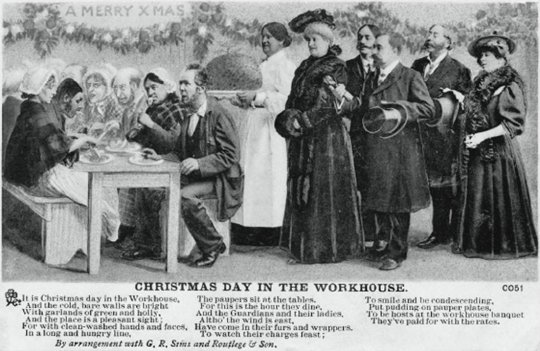
Regarding the in-game dish, from the looks of it, the roast beef is being served in a large Yorkshire pudding, which isn't too abnormal either (ex: places in Yorkshire sometimes might serve your dinner in a large pudding)
#idv#identity v#norton campbell#prospector#idv norton#identity v norton#idv prospector#identity v prospector#sirenjose analyses and theories
56 notes
·
View notes
Text
Oh! the Roast Beef of Old England: Roast Beef, English Nationalism, Effeminacy and Epilepsy (ft. Lord Hervey)
While today if asked what the national dish of England is some might say bangers and mash, Yorkshire pudding or chicken tikka masala in the 18th century the answer was roast beef.
It was roast beef that was the star of the patriotic 18th century song The Roast Beef of Old England. Originally written by Henry Fielding for his play The Grub-Steet Opera (1731) and then reused in Don Quixote in England (1734) the more popular version was written by Richard Leveridge who set it to a catchier tune and added five new stanzas:
When mighty roast Beef was the Englishman's Food, It ennobled our Veins, and enriched our Blood; Our Soldiers were brave, and our Courtiers were good. Oh the roast Beef of old England, and old English roast Beef. But since we have learn'd from all-conquering France, To eat their Ragouts, as well as to dance, We are fed up with nothing, but vain Complaisance. Oh the roast Beef, &c. Our Fathers, of old, were robust, stout, and strong, And kept open House, with good Chear all Day long, Which made their plump Tenants rejoice in this Song. Oh the roast Beef, &c. But now we are dwindled, to what shall I name, A sneaking poor Race, half begotten-and tame, Who sully those Honours, that once shone in Fame. Oh the roast Beef, &c. When good Queen Elizabeth sat on the Throne, E're Coffee, or Tea, and such Slip-Slops were known, The World was in Terror, if e'er she but frown. Oh the roast Beef, &c. In those Days, if Fleets did presume on the Main, They seldom, or never, return'd back again, As witness, the vaunting Armada of Spain. Oh the roast Beef, &c. Oh then they had Stomachs to eat, and to fight, And when Wrongs were a cooking, to do themselves right; But now we're a-I could, but good Night. Oh the roast Beef, &c.
Leveridge's version espouses the masculine qualities roast beef making Englishmen "brave", "robust," and "strong". Fielding's version from Don Quixote in England contrasts this English masculinity with the non-roast beef eating "effeminate Italy, France, and Spain". (Edgar V. Roberts, Henry Fielding and Richard Leveridge: Authorship of "The Roast Beef of Old England")
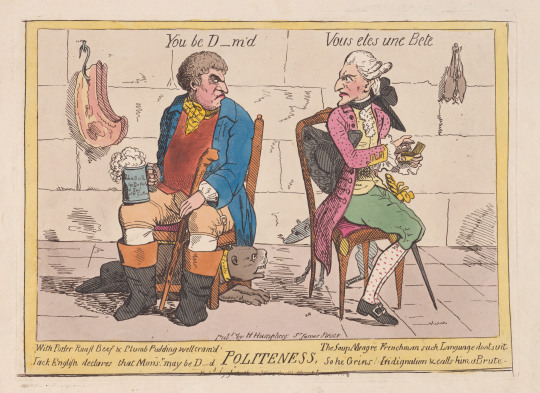
[Politeness, print, after 1780, published by Hannah Humphrey, after John Nixon (1779), via The Metropolitan Museum of Art.]
A common element of English nationalist propaganda was to contrast the masculine beef eating Englishman with the effeminate frogs legs eating Frenchman. The satirical print Politeness compares the masculine John Bull to a stereotypical effeminate Frenchman. John Bull is depicted as a plainly dressed man, holding a pint of beer, with a Bulldog at his feet and a cut of beef hanging behind him. The Frenchman in contrast is depicted as foppishly dressed, holding a snuff-box, with an Italian Greyhound at his feet and a bundle of Frogs hanging behind him. John Bull says "You be D_m'd". The Frenchman responds "Vous ete une Bete". The caption narrates:
With Porter Roast Beef & Plumb Pudding well cram'd, Jack English declares that Monsr may be D------d. The Soup Meagre Frenchman such Language dont suit, So he Grins Indignation & calls him a Brute.
In 18th century English print culture the butcher became somewhat of a stock figure representing English masculinity. There was a series of prints in which a masculine butcher is depicted assaulting a fop. Often with bystanders cheering him on. Some of these prints identified the fop as a Frenchman (such as The Frenchman in London by John Collet and The Frenchman at Market by Adam Smith) but others either don't identify nationality or indicate that the fop is English.
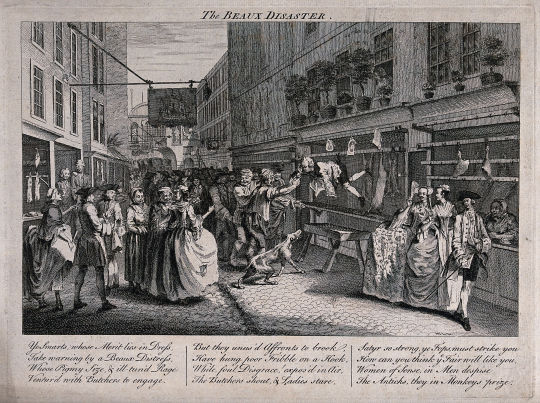
[The Beaux Disaster, print, c. 1747, via The Wellcome Collection.]
The Beaux Disaster depicts the aftermath of an altercation between a butcher and a fop. The butcher has hung the fop up by the back of his breeches on a hook next to cuts of meet. A crowd of passersby point and laugh at the fop, enjoying his misfortune. The caption narrates:
Ye smarts whose merit lies in dress, Take warning by a beaux distress. Whose pigmy size, & ill-tun'd rage Ventured with butchers to engage. But they unus'd affronts to brook Have hung poor Fribble on a hook, While foul disgrace! expos'd in air, The butchers shout and ladies stare. Satyr so strong, ye fops must strike you How can ye think ye fair will like you, Women of sense, in men despise The anticks, they in monkeys prize.
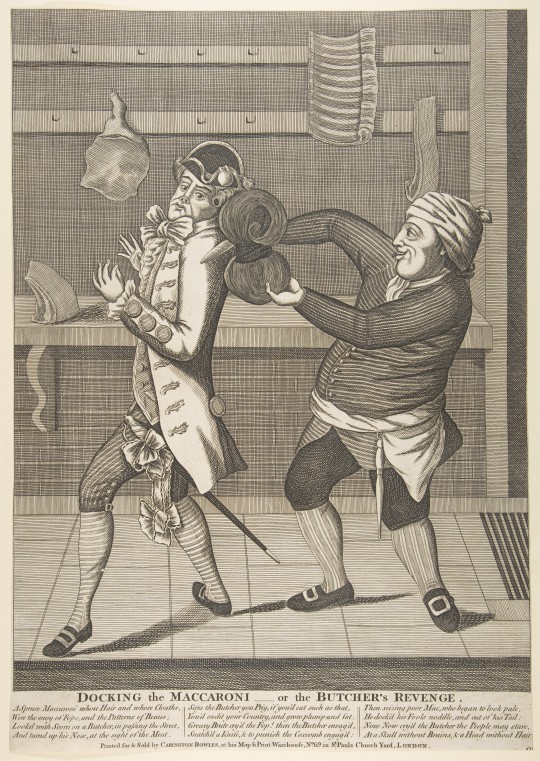
[Docking the Maccaroni–or the Butcher's Revenge, print, c. 1773, published by Carington Bowles, via The Metropolitan Museum of Art.]
Docking the Maccaroni–or the Butcher's Revenge depicts a butcher cutting off a macaroni's queue. Fashionable men in the late 1760s and 1770s would wear elaborate hairstyles sometimes with hair tied back into a 'club'. This hairstyle is a common element of macaroni satire (for a more flattering rendering of the style see George Simon Harcourt by Daniel Gardner). The caption narrates:
A Spruce Maccaroni whose Hair and whose Clothes, Were the envy of Fops, and the Patterns of Beaus; Looked with Scorn on a Butcher; in passing the Street, And turnd up his Nose, at the sight of the Meat. Says the Butcher you Pig, if you'd eat such as that, You'd credit your Country, and grow plump and fat. Greasy Brute cry's the Fop! then the Butcher enrag'd, Snatch'd a Knife, & to punish the Coxcomb engag'd: Then seizing poor Mac, who began to look pale, He docked his Fools noddle, and cut of his Tail: Now Now cry'd the Butcher the People may stare. At a Skull without Brains, & a Head without Hair.
The macaroni was often portrayed as a traitor to English culture not only for his love of french fashion but also his love of Italian pasta. The fabled 'macaroni club' was a reference to Almack's Assembly Rooms at 50 Pall Mall. (see Pretty Gentleman by Peter McNeil p52-55) The Macaroni and Theatrical Magazine (Oct 1772) explains that the origin of the word macaroni comes from:
a compound dish made of vermicelli and other pastes, which unknown in England until then, was imported by our Connoscenti in eating, as an improvement to their subscription at Almack's. In time, the subscribers to those dinners became to be distinguished by the title MACARONIES, and, as the meeting was composed of the younger and gayer part of our nobility and gentry, who, at the same time that they gave into the luxuries of eating, went equally into the extravagancies of dress; the word Macaroni then changed its meaning to that of a person who exceeded the ordinary bounds of fashion; and is now partly used as a term of reproach to all ranks of people, indifferently, who fell into this absurdity.
(Cited in Catalogue of Prints and Drawings in the British Museum edited by Frederic George Stephens and Edward Hawkins, vol.4, p.826)
Foppishly dressed men were blamed not only for the popularisation of pasta in England but also the growing disfavour for roast beef. A letter written to The Connoisseur in 1767 complains:
By Jove it is a shame, a burning shame, to see the honour of England, the glory of our nation, the greatest pillar of like, ROAST BEEF, utterly banished from our tables. This evil, like many others, has been growing upon us by degrees. It was begun by wickedly placing the Beef upon a side-table, and screening it by a parcel of queue-tail'd fellows in laced waistcoats.
(Volume 1, Edition 5)
With both his dress and diet the fop had betrayed English masculinity for French and Italian effeminacy.
Passed down by Lady Louisa Stuart* as an example of the "extreme to which Lord Hervey carried his effeminate nicety", when "asked at dinner whether he would have some beef, he answered, "Beef?— Oh, no!— Faugh! Don't you know I never eat beef, nor horse, nor any of those things?" Stuart was somewhat skeptical of this story wondering "Could any mortal have said this in earnest?"
*anonymously. Stuart wrote the introductory anecdotes included in the 1837 edition of The Letters and Works of Lady Mary Wortley Montagu.
While it's anyone's guess as to whether Hervey said these exact words it is true that he didn't eat beef. Not because he "courted" effeminacy with the "affected and almost finical nicety in his habits and tastes" as John Heneage Jesse suggests (in Memoirs of the Court of England from the Revolution in 1688 to the Death of George the Second) but for his health.
Lord Hailes explained:
Lord Hervey, having felt some attacks of the epilepsy, entered upon and persisted in a very strict regimen, and thus stopt the progress and prevented the effects of that dreadful disease. His daily food was a small quantity of asses milk and a flour biscuit : once a-week he indulged himself with eating an apple : he used emetics daily.
(The Opinions of Sarah Duchess-Dowager of Marlborough edited by Lord Hailes, p43)
Lord Hervey's doctor George Cheyne believed that "a total Milk, and Vegetable Diet, as absolutely necessary for the total Cure of the Epilepsy". (The English Malady, p254)
In An Account of My Own Constitution and Illness Hervey explains that he followed such a diet for three years on Cheyne's prescription eating "neither flesh, fish, nor eggs" but living "entirely upon herbs, roots, pulse, grains, fruits, legumes". (p969) However after three years he reintroduced white meet. He explains his diet in a letter to Cheyne, written on the 9th of December 1732:
To let you know that I continue one of your most pious votaries, and to tell you the method I am in. In the first place, I never take wine nor malt drink, or any liquid but water and milk-tea ; in the next, I eat no meat but the whitest, youngest, and tenderest, nine times in ten nothing but chicken, and never more than the quantity of a small one at a meal. I seldom eat any supper, but if any, nothing absolutely but bread and water ; two days in the week I eat no flesh ; my breakfast is dry biscuit not sweet, and green tea ; I have left off butter as bilious ; I eat no salt, nor any sauce but bread sauce. I take a Scotch pill once a week, and thirty grains of Indian root when my stomach is loaded, my head giddy, and my appetite gone. I have not bragged of the persecutions I suffer in this cause ; but the attacks made upon me by ignorance, impertinence, and gluttony are innumerable and incredible.
Intriguingly in An Account of My Own Constitution and Illness Hervey focuses more attention on colic than epilepsy, dismissing his seizures as rare, but admits he had "two this year". This leads to the impression that his diet was prescribed to treat colic rather than epilepsy and Cheyne did prescribe a milk and vegetable diet in cases of "extreme Nervous Cholicts". (p167) Perhaps it was prescribed to treat both. But why downplay epilepsy in an account of his own illness?
While some enlightenment doctors approached epilepsy with a more scientific approach, superstitions still remained. Some believed epilepsy was a form of lunacy that was controlled by the moon (the word lunatick coming from luna). In An Historical Essay on the State of Physick in the Old and New Testament Dr. Jonathan Harle claimed that "people in this distemper are most afflicted at full or change of the moon." (p124)
Many believed epilepsy was caused by possession and this belief was supported by the bible. Mark 9:17-27, Matthew 17:14-18 and Luke 9:37-43 tell the story of a man who brings his possessed son to Jesus who "rebuked the unclean spirit, and healed the child". The boy's symptoms resemble those of an epileptic seizure and these bible verses are cited by Dr. Jonathan Harle as "an exact description of one that is an epileptick (had the falling sickness) or lunatick". (p124) Harle claimed that was "a truth as plain as words can make it" that some people with epilepsy were "possess'd by the devil". (p22)
Epilepsy was also believed to be caused by sexual depravity. The popular anti-masturbation pamphlet Onania: or, the Heinous Sin of Self-Pollution claimed masturbation caused epilepsy (p23). Onanism: or, a treatise upon the disorders produced by masturbation, or, The dangerous effects of secret and excessive venery claimed that a 14-year-old boy "died of convulsions, and of a kind of epilepsy, the origin of which was solely masturbation". (p19)
With the stigma surrounding epilepsy its no wonder that Hervey kept his seizures secret only telling a select few. One of the people he trusted with this secret was his lover Stephen Fox. Hervey describes having a seizure while at court and keeping it hidden from the Royal Family in a letter to Fox written on the 7th of December 1731:
I have been so very much out of order since I writ last, that going into the Drawing Room before the King, I was taken with one of those disorders with the odious name, that you know happen'd to me once at Lincoln's Inn Fields play-house. I had just warning enough to catch hold of somebody (God knows who) in one side of the lane made for the King to pass through, and stopped till he was gone by. I recovered my senses enough immediately to say, when people came up to me asking what was the matter, that it was a cramp took me suddenly in my leg, and (that cramp excepted) that I was as well as ever I was in my life. I was far from it ; for I saw everything in a mist, was so giddy I could hardly walk, which I said was owing to my cramp not quite gone off. To avoid giving suspicion I stayed and talked with people about ten minutes, and then (the Duke of Grafton being there to light the King) came down to my lodgings, where * * * I am now far from well, but better, and prodigiously pleased, since I was to feel this disorder, that I contrived to do it à l'insu de tout le monde. Mr. Churchill was close by me when it happened, and takes it all for a cramp. The King, Queen, &c. inquired about my cramp this morning, and laughed at it ; I joined in the laugh, said how foolish an accident it was, and so it has passed off ; nobody but Lady Hervey (from whom it was impossible to conceal what followed) knows anything of it.
41 notes
·
View notes
Text
A Winter Ball for Two
Draco x Hermione | @hp-yuletide-bliss Day 9: Winter ball | WC 2050 | Rating: T
She was enchanting.
Draco could at least admit that.
He might find his tongue tied up in knots, or find sudden, intense interest in the cracks of the castle walls wherever she drew near, but he could not deny that Hermione Granger looked like a winter fairy dressed and glowing as she was in the flickering light of the hundreds of candles floating above their heads.
The Great Hall was decked from corner to corner with its usual Christmas icing, but additional care had been taken to make the event feel extra special in light of the school’s inaugural Winter Ball, to be held annually after their Eighth and final year. The students had truly pulled out all of the stops with their eagerness to bring joy back to the haunted halls of their youth.
Granger spearheaded those efforts as Head Girl, delegating tasks to Professors, Prefects, and volunteers alike. Draco might have been spared if not for his best mate being her counterpart as Head Boy. Theo refused to let Draco hide himself away in his dorm room, or, on the rare occasion, the library. He’d found himself dragged to the Heads’ private rooms and pressured into providing any valuable input the sole child of Narcissa Malfoy could give. He’d grown up in the lap of luxury, after all. Organizing and attending balls were as natural to Draco as riding a broomstick.
He’d expected to be left alone with Theo in the common room, for Granger to avoid him like the plague that he was. He’d seen how others couldn’t help but stare at his arm, as if willing his mark to burn through the sleeve.
She hadn’t done that.
Granger sat in with them most nights, curling up in an armchair, her armchair as Draco started to see it, cushioned by squishy pillows and swimming in a blanket large enough for a Quidditch team. She started plying them with treats and hot beverages, even going so far as to remember their likes and dislikes and supplying accordingly.
Knowing what she did of his family and home, and bearing the weights of their past, Granger was surprisingly curious about his experiences. She asked him about his family traditions, his most memorable gifts. His experiences growing up in the Malfoy household were much gentler than Theo’s, whose sole comfort had been his mother, one lost after her untimely death.
They, in turn, learned about her and, by default, Muggle traditions.
“I’m telling you, Granger, Father Christmas has to be a wizard. I mean, how could he not be? Fireplaces? Flying reindeer? Time manipulation?”
Theo had taken the opportunity to steal the witch’s chair when she’d gone for a tea refill, and she’d been forced to join Draco on the sofa to address his theory.
“Doesn’t it strike you as odd how entrenched he is in Muggle tradition? It makes me wonder just what kind of man he was–was he simply a philanthropist who wanted to bring joy to all children, Muggle and Magical, rich and poor, no matter their nationality or beliefs, or did he have some other underlying agenda?”
They’d gone on to argue over whether or not one wore pajamas to open Christmas presents–the only way Draco would ever concede would be if she showed up in crimson lingerie, otherwise clothing appropriate for pictures and visitors it was–as well as their expected courses at the dinner table. They both agreed Yorkshire pudding and redcurrant jelly were requirements, but Draco had put his foot down at her insistence that roast beef could be anywhere near the level of a perfectly prepared turkey.
“Why not both?” Theo mused.
“Shut it, Theo,” Draco snapped, “I don’t want to hear that from a wizard who eats his weight in sausage rolls every Christmas.”
Theo had merely winked, sending Granger into a fit of giggles.
“Oh, yes, Theo does love his sausages,” she managed to get out, before dissolving once more into laughter. Draco refused to acknowledge how cute he found the snorts that peppered her glee.
And now, here he was, lurking behind one of the many towering fir trees lining the Great Hall and attempting to blend into the foliage.
It hadn’t been difficult to avoid notice. Very few students, or even teachers, paid him much attention other than to glare or mutter insults. The sooner he could leave, the better. He wanted to be here as much as others did, which meant not at all.
“Why don’t you ask her to dance?”
Of course, Potter would find him.
Draco turned to face his long-time rival, taking in his relaxed stance, the bulkier form he’d built in his time since those days as Undesirable No. 1. Adulthood looked good on Potter.
“I’m surprised to see you here.” He ignored the question, choosing to redirect instead.
Bright green eyes flashed, and Draco couldn’t help but feel like he’d been easily read. Then, in a curious show of nerves, Potter bit his lip and looked off into the crowd.
“I couldn’t resist.”
Draco traced the line of sight. He saw Granger dancing with Theo, her head thrown back in a laugh, the graceful line of her neck bare and delicate. He searched for the expected fiery red hair of the Weaslette, only to find her far off to the right and decidedly not the target of Potter’s desire. So, who was he looking at?
A horrifying thought tickled the back of his mind.
Was he looking at Granger?
“Why don’t you ask her to dance?” he found himself asking the same question he’d dodged earlier.
Had they found love during their lost year, despite Weasley’s presence? Had Draco stumbled across some sort of love triangle? Granger had never indicated her attachment to anyone, but Draco had assumed the obvious. How could anyone not fall for her in close proximity like they’d been?
“Doesn’t that kind of defeat the purpose?” One thick, black brow rose in consideration as Potter stared straight at him, his arms now crossed over his chest.
“What do you mean?” Draco was confused. Defeat the purpose of what?
He nearly let his younger self sneer out an insult at the way those eyes rolled into Potter’s head.
“How can I spend any time with Theo if I’m dancing with Hermione?”
Wait, what?
Potter and…Theo?
“No offense, but how? And when?” Draco asked, nearly sputtering in disbelief.
“Well, I’d have thought the intricacies of gay sex would lie outside of your particular interests, but if you really want–” He broke off with a laugh at Draco’s choked gasp. “Sorry, couldn’t help myself. You make it so easy sometimes, Malfoy.”
“I do not,” he muttered. He hated that Theo and Granger both said the exact same thing.
“I’d heard about how he helped last year here at the castle from Neville, the way he was there for the younger kids no matter their house or blood status. That couldn’t have been easy for someone with his background.”
That knowledge had surprised Draco, as well. He hadn’t been around last year, either, but it didn’t take long for Theo’s actions to make themselves known throughout their mutual circles. Theo’s father had been…less than pleased, but that hadn’t stopped his mate from doing whatever he could to help. Theo was a better man than Draco, by far.
“So when Hermione brought him around, I already had a good impression. After meeting him, though?” Potter’s face softened, his expression wistful as he glanced back towards the dance floor. “How could I not fall for him?”
Not only was he the Chosen One, the damn Savior of the Wizarding World, but he was every bit the sort of person Draco would have wanted for his closest friend. He was brave and, Draco could admit it now, kind.
One song ended, then another began, slower, sweeter. Draco summoned up every bit of courage he could find. There wasn’t much, but it was enough.
“Let’s go, Potter.”
Again with the arched brow. Then, a crooked smile, one Draco couldn’t help but reciprocate.
Within moments, he stood before her, sweat building at the nape of his neck. He resisted the urge to wipe his hands against his robes. She turned at his approach, her partner now also facing away towards Potter.
“Malfoy? Is there something wrong?”
Sweet Salazar.
Her skin was flushed in the heat of her movements, tiny curls spilling out of her updo and framing her face in a way that had him yearning to brush them back, to lean in and breathe in deep. Her chest rose and fell heavily, chestnut irises pierced through with flecks of gold staring up at him in question.
“Would you do me the honor of this dance?”
Curiosity melded into pleasure, her lips spreading wide to show off her perfect smile. He wanted to make her smile like that everyday.
“It would be my pleasure.”
She placed her hand in his, and he smoothly moved it up to his shoulder, stepping in close to sweep her up into his arms. It didn’t matter what song played, or whether or not she knew the steps–as far as he was concerned, there was nobody else but them. Hermione seemed just as caught in the moment as he, her face upturned and rosy lips parted as she traced his features like she meant to memorize the moment for the future. He knew he would.
She floated weightlessly in his embrace, her steps following him without hesitation. A raise of his arm and a spin had him admiring the silver-white twirl of her skirt around her slender legs. It didn’t matter what she wore, however. He still would have thought her just as enchanting were she in her favorite joggers, her mane tied up in a wand as it often was.
“You look beautiful.”
She blushed at the praise, eyes darting away for a split second like she couldn’t believe him.
“So do you.” Her head jerked back and eyes widened comically, and she hastened to correct herself. “I mean, you look handsome. Your robes, they bring out your eyes.”
He found it impressive that she could blush even deeper, and couldn’t help the grin that spread across his face. “I don’t mind ‘beautiful’, but you’re free to compliment me however you’d like.”
The hand that was resting on his shoulder came up to thwack him lightly on the back of the head.
“Ow!”
“That’s for teasing me,” she said with a scowl, but he could tell she didn’t really mean it.
“As long as you don’t punch me in the nose again.” Could that have been the moment that she really caught his attention? Not her blood status, nor her annoying academic superiority, but her swift right hook?
Her head tilted one way, then the other. “I don’t think I will. I quite like your nose how it is.”
Well, in that case.
He brought his face down closer to her own, and she squeaked at the sudden nearness of him.
Fucking adorable.
“Hermione?”
She stared unblinkingly back at him, as caught by the sound of her name on his lips as she was by his proximity. “Yes?” she whispered, so softly it was only his eyes on her lips that read the word.
“Would you let me take you out this weekend?”
“Out?” she echoed, still barely audible.
“Out. You. Me. A date.”
“A date?”
Had he broken her? She looked lost, like she wasn’t sure if she was dreaming. Maybe he’d read her all wrong, and the perceived closeness of the past weeks was nothing but his imagination. Perhaps his request blindsided her, coming from someone she only saw as a friend of a friend, or, worse, someone she barely tolerated.
The possibilities roared through his head and his movement slowed, no longer hearing the music. He wanted to leave. He should have left earlier, before Potter and his bloody bravery.
“I’m going to–”
“Yes.”
Strings and woodwinds roared back to full volume, laughter from the other dancers surrounding them as he returned to the ball. To Hermione. She looked up at him now, serious, expectant.
“Yes?”
Hope unfurled like the spreading warmth of a crackling fire as her lips turned upward and creases formed at the corners of her eyes.
“Yes.”
Cross-posted to Tumblr and AO3
Well, this certainly went a tad deeper than I had intended. I wasn’t planning on doing much backstory on their relationship, but couldn’t help myself with Theo in the mix. He’s such a darling, and I loved inserting a bit of him and Harry into the background.
#hp yuletide bliss#christmas hp fest#dramione#dhr fanfiction#harry potter fanfiction#draco malfoy x hermione granger#draco malfoy#hermione granger
24 notes
·
View notes
Text
October 13: International Day of Failure, National M&M Day, National No Bra Day, National Train Your Brain Day, National Transfer Money to Your Son Day, National Yorkshire Pudding Day, Pastor Appreciation Day, World Thrombosis Day etc.
Today (October 13th), we celebrate the following national and international days:
International Day for Disaster Risk Reduction
International Day for Failure
International Skeptics Day
Metastatic Breast Cancer Awareness Day
National Herpes Awareness Day
National M&M Day
National No Bra Day
National Train Your Brain Day
National Transfer Money to Your Son Day
National Yorkshire Pudding Day
Pastor Appreciation Day
World Thrombosis Day
Learn more: https://digitalhygge.com/october-13/

#october#october 13#m&ms#m&m cookies#no bra#no bra needed#no bra club#no bra day#no bra no problem#pastor#herpesvirus#yorkshire pudding
3 notes
·
View notes
Text
Holidays 10.13
Holidays
Agricultural Workers’ Day (Russia)
Artist’s Day (Ukraine)
Astronomy Day
Azerbaijani Railway Day
Blame Someone Else Day
Bonn Phchum Ben (Ancestors’ Day; Cambodia)
Chuuk (Teachers’ Appreciation Day; Micronesia)
Clean the Crumbs Out of the Broiler Oven Day
Cold Turkey Day
Cultural Workers’ Day (Belarus)
Dashain Festival (Nepal)
Dia del Respeto a la Diversidad Cultural (Argentina)
Durga Puja (a.k.a. Dasain (Sikkim, India)
Dussehra (a.k.a. Durga Ashtami; Parts of India)
English Language Day (UK)
Festival of Unmediated Play
Fox Mulder Day (X-Files)
Geologic Map Day
Ghatasthapana (Nepal)
Global Fertilizer Day
Good Samaritan Day
The Great Memorial Day (Thailand)
International Cassette Store Day
International Civility for the Girl Child Day
International Day for Failure (a.k.a. National Failure Day)
International Day For Natural Disaster Reduction (UN)
international Day of Education in Prison
International EarthCache Day
International Plain Language Day
International Skeptics Day
International Suit Up Day
John Peel Day
Karva Chat (Himachal Pradesh, India) [Women’s Festival Only]
King Bhumibol Adulyadej The Great Memorial Day (Thailand)
Metastatic Breast Cancer Awareness Day
Military Hydrographer Day (Russia)
Modern Mythology Day
National Chess Day
National Erection Day
National Guinea Pig Day (Peru)
National Headband Day
National Herpes Awareness Day (Australia)
National No Excuse Day
National ‘That’s What She Said’ Day
National Transfer Money to Your Son Day
Navy Establishment Day
No Bra Day
Oilfield Prayer Day (Oklahoma)
Paramedics’ Day (Poland)
Peach Day (French Republic)
Prince Louis Rwagasore Day (Burundi)
Railway Employees Day (Azerbaijan)
Rwagasore Day (Burundi)
Silly Sayings Day
Swiftie Day
Tacksägelsdagen (Thanksgiving; Sweden)
Templars Day
Train Your Brain Day
Treat Yo’ Self Day
Vietnamese Entrepreneur’s Day (Vietnam)
Wan Tamruat (a.k.a. National Police Day; Thailand)
White House Day
Witches’ Festival (Elder Scrolls)
World Bank Action Day
World Cage Free Day
World Thrombosis Day
World Zombie Day
Food & Drink Celebrations
National M&M Day
National Peanut Day
National Pumpkin Day
Yorkshire Pudding Day
Independence & Related Days
None Known
2nd Sunday in October
Bokbierdag (National Bock Beer Day; The Netherlands) [ website ] [2nd Sunday]
Clergy Appreciation Day (a.k.a. Pastor Appreciation Day or Ministry Appreciation Day) [2nd Sunday]
Drink Local Wine Week begins [2nd Sunday]
Father-Daughter Day [2nd Sunday]
Good Thief Sunday [2nd Sunday]
Grandmother's Day (Florida; Germany) [2nd Sunday]
Grandparents’ Day (Hong Kong) [2nd Sunday]
Pastor Appreciation Day (a.k.a. Ministry Appreciation Day) [2nd Sunday]
Sandwich Sunday [2nd Sunday of Each Month]
Seven For Sunday [Every Sunday]
Shojo Festival (Narumi Hachimangu, Nagoya, Japan) [2nd Sunday]
Sleepy Sunday [2nd Sunday of Each Month]
Sundae Sunday [Every Sunday]
Sunday Funday [Every Sunday]
Survey Sunday [2nd Sunday of Each Month]
White Sunday (American & Western Samoa) [2nd Sunday]
World Day of Aunts & Uncles [2nd Sunday]
Weekly Holidays beginning October 13 (2nd Full Week of October)
Anti Poverty Week [Australia]
Drink Local Wine Week (thru 10.19) [2nd Full Week]
Earth Science Week (thru 10.19) [2nd Full Week]
Healthcare Security and Safety Week (thru 10.19) [2nd Full Week]
Improve Your Home Office Week (thru 10.19) [2nd Full Week]
Infection Control Week (thru 10.19) [3rd Week]
International Credit Union Week (thru 10.19) [Week of Int’l Credit Union Day]
International Infection Prevention (or Protection) Week (thru 10.19)
Meditation Week (thru 10.19) [3rd Week]
National Case Management Week (thru 10.19) [2nd Full Week]
National Chestnut Week (thru 10.19) [2nd Full Week]
National Food Bank Week (thru 10.19) [Week including 10.16]
National Lone Wolf Week (thru 10.19) [3rd Week]
National School Lunch Week (thru 10.19) [2nd Full Week]
National Veterinary Technician Week (thru 10.19) [3rd Week]
Nuclear Science Week (thru 10.19) [3rd Week]
Pet Peeve Week (thru 10.19) [2nd Full Week]
Teen Read Week (thru 10.19) [Week of Columbus Day]
YMCA With our Violence Week (thru 10.19) [3rd Week]
Festivals Beginning October 13, 2024
The Chocolate Expo (Manchester, New Hampshire)
Doi Taikomatsuri (Japan) [thru 10.15]
Dunellen HarvestFest (Dunellen, New Jersey)
Troy Chowderfest (Troy, New York)
Feast Days
Aequinoctium Autumnale VI (Pagan)
Alan Turing Day (Church of the SubGenius; Saint)
Alexandrina of Balasar (Christian; Blessed)
Allan Ramsay (Artology)
Arna Bontemps (Writerism)
Arrabiata Sauce Day (Pastafarian)
Campanella (Positivist; Saint)
Colman (Christian; Saint)
Conrad Richter (Writerism)
Daniel and companions, of Ceuta (Christian; Saints)
Edward the Confessor (Translation of the Relics Day)
Fautus, Januarius, and Martialis (Christian; Martyrs)
Fontanalia (a.k.a. Fontus; Old Roman God of Wells & Springs)
Gerald of Aurillac (Christian; Saint)
Herblock (Artology)
Maddalena Panattieri (Dominican Order of Preachers; Christian; Blessed)
Mariotto Albertinelli (Artology)
Miracle of the Sun
Moley the Mole (Muppetism)
Our Lady of Fatima (Roman Catholic)
Seven Friar Minors (Christian; Martyrs in Morocco)
Terry Frost (Artology)
Theophilus of Antioch (Christian; Saint)
Very Saucey Day (Pastafarian)
Walasse Ting (Artology)
Lucky & Unlucky Days
Sensho (先勝 Japan) [Good luck in the morning, bad luck in the afternoon.]
Premieres
All About Eve (Film; 1950)
The Babysitter (Film; 2017)
Badlands (Film; 1973)
Batman: Death in the Family (WB Animated Film; 2020)
A Bear Called Paddington, by Michael Bond (Children’s Book; 1958)
Bee at the Beach (Disney Cartoon; 1950)
Billy Elliot (Film; 2000)
The Bon Bon Parade (Color Rhapsody Cartoon; 1935)
Code of the Samurai: A Modern Translation of the Bushido Shoshinshu of Taira Shigesuke, by Daidōji Yūzan (History Book; 1943)
Crimes and Misdemeanors (Film; 1989)
Fat Bottomed Girls/Bicycle Race, by Queen (Songs; 1978)
Fly with von Drake (Disney Animated TV Special; 1963)
The Foreigner (Film; 2017)
The Fowl Ball (Oswald the Lucky Rabbit Cartoon; 1930)
Goodbye Christopher Robin (Film; 2017)
Harvey (Film; 1950)
Hell House, by Richard Matheson (Novel; 1971)
The House of Mirth (Film; 2000)
Jane the Virgin (TV Series; 2014)
The Last Witch Hunter (Film; 2015)
Linda McCartney’s Sixties: Portrait of an Era, by Linda McCartney (Book; 1992)
Look Who’s Talking (Film; 1989)
The Nightmare Before Christmas (Animated Film; 1993)
…Nothing Like the Sun, by Sting (Album; 1987)
Riley’s First Date? (Pixar Cartoon; 2015)
The Rum Diary (Film; 2011)
The Scarlet Letter (Film; 1995)
The Seventh Seal (Film; 1958)
Single Ladies (Put a Ring on It), by Beyoncé (Song; 2008)
The Sultan’s Birthday (Mighty Mouse Cartoon; 1944)
Taylor Swift: The Eras Tour (Concert Film; 2023)
Who’s Afraid of Virginia Woolf?, by Edward Albee (Play; 1962)
Wide Sargasso Sea, by Jean Rhys (Novel; 1966)
Yankee Dood It (WB MM Cartoon; 1956)
, by Prince (Album; 1992)
Today’s Name Days
Eduard, Gerald (Austria)
Bogoljub, Eduard, Romul, Teofil (Croatia)
Renáta (Czech Republic)
Angelus (Denmark)
Ebba, Ebe, Epp (Estonia)
Taija, Taina, Tanja (Finland)
Géraud (France)
Andre, Eduard, Koloman (Germany)
Agathoniki, Chrysi, Florentia, Florentios, Karpos (Greece)
Ede, Kálmán (Hungary)
Benedetto, Edoardo (Italy)
Irma, Mirga (Latvia)
Eduardas, Edvardas, Mintaras, Nortautė, Venancijus (Lithuania)
Tarjei, Terje, Torgeir (Norway)
Daniel, Edward, Gerald, Geraldyna, Maurycy, Mikołaj, Siemisław, Teofil (Poland)
Agatodor, Agatonica, Andrei, Carp, Papil (Romania)
Koloman (Slovakia)
Eduardo, Fausto (Spain)
Berit, Birgit (Sweden)
Eddie, Eddy, Eduardo, Edward, Edwardine, Ned (USA)
Today is Also…
Day of Year: Day 287 of 2024; 79 days remaining in the year
ISO: Day 7 of Week 41 of 2024
Celtic Tree Calendar: Gort (Ivy) [Day 15 of 28]
Chinese: Month 9 (Jia-Xu), Day 11 (Geng-Xu)
Chinese Year of the: Dragon 4722 (until January 29, 2025) [Wu-Chen]
Hebrew: 11 Tishri 5785
Islamic: 9 Rabi II 1446
J Cal: 17 Orange; Threesday [17 of 30]
Julian: 30 September 2024
Moon: 80%: Waxing Gibbous
Positivist: 7 Descartes (11th Month) [St. Thomas Aquinas]
Runic Half Month: Gyfu (Gift) [Day 7 of 15]
Season: Autumn or Fall (Day 22 of 90)
Week: 2nd Full Week of October
Zodiac: Libra (Day 21 of 30)
1 note
·
View note
Text
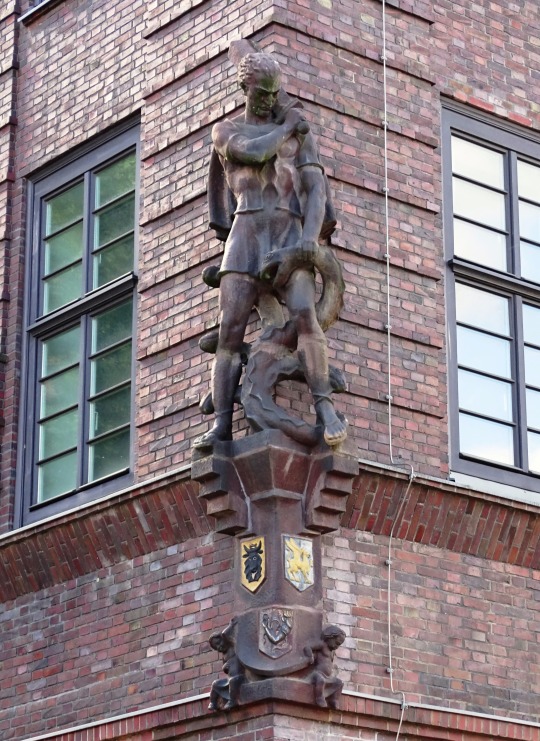
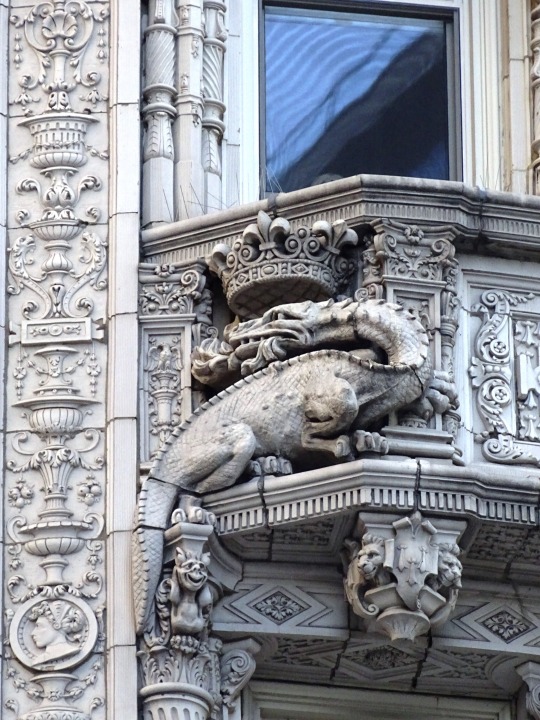








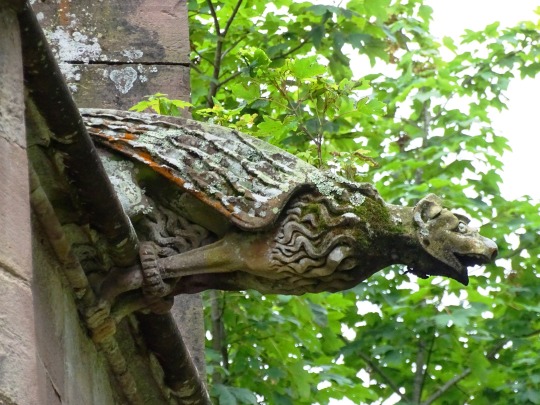

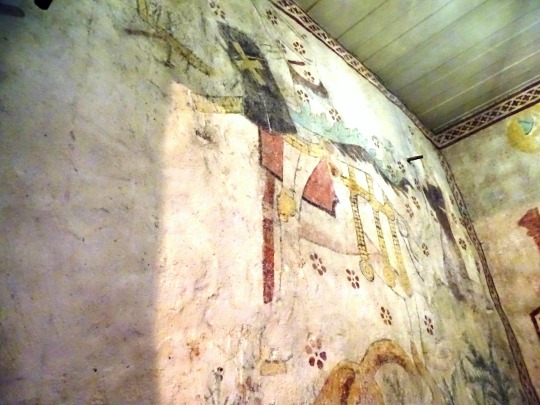


St. George’s Day
Legend has it that St. George slayed a dragon and saved a princess. Today, his bravery is celebrated worldwide, inspiring us to be courageous.
Named after St. George, the patron saint of England, St. George’s Day is a cultural and national holiday marked with events and celebrations, including parades, music, and traditional English food. It is an important part of English culture and heritage, and is a time for people to come together and celebrate their country and its history.
History of St. George’s Day
St. George was a soldier in the Roman army who is venerated as a saint and is the patron saint of England. According to legend, he was a brave and noble knight who fought against evil and injustice. The most famous legend about St. George is that he slayed a dragon that was terrorizing a town and threatening to kill a princess. In the story, St. George rode up on his horse, drew his sword, and killed the dragon, saving the princess and the town.
There are many different versions of the legend of St. George, and it is unclear how much of it is based on fact and how much is myth. However, St. George is still widely revered as a symbol of courage, and his story has inspired many people over the years.
In reality, St. George was likely a real person who lived in the 3rd or 4th century AD. He was born in Palestine and later became a Roman soldier. He is believed to have been martyred for his Christian faith, and was later canonized as a saint.
St. George’s Day has been celebrated in England for centuries, with the earliest recorded celebrations dating back to the 12th century, when he was named the patron saint of England. At the time, St. George was already a popular saint in the Christian world, and he was revered for his bravery and selflessness.
Over the centuries, St. George’s Day became an important holiday in England, and it was observed with various ceremonies and celebrations. In the Middle Ages, St. George’s Day was a major feast day, and people would attend church services, hold parades, and hold feasts in his honor.
How to Celebrate St. George’s Day
St. George’s Day is typically celebrated in England on April 23rd every year, and one of the most common ways it’s celebrated is through parades and processions. These may include marching bands, floats, and groups of people dressed in traditional English costumes. In some places, people may also hold festivals or fairs with food, music, and other entertainment.
If you would like to celebrate St. George’s Day, there are many ways to do so, here are a few ideas:
Fly the Flag
One way to celebrate St. George’s Day is by flying the English flag. This can be done by hanging a flag outside your home or office, or by wearing a flag pin or clothing item that features the flag. This is a simple and visible way to show your support for England and its patron saint.
Attend a Parade
Many towns and cities in England hold parades on St. George’s Day, featuring traditional costumes, music, and activities. This is a fun and festive way to celebrate the day and experience English culture.
Learn About St. George
If you’re interested in learning more about St. George, one way to celebrate is by reading about his life and legacy. You can learn about his history, the legends associated with him and the ways he is celebrated. This can be a more educational way to observe the day.
Cook English Food
Celebrating St. George’s Day could also be an opportunity to try some traditional English food, such as roast beef and Yorkshire pudding, fish and chips, or shepherd’s pie. You can also make your own version of these dishes, or try a recipe for a classic English dessert such as trifle or Bakewell tart.
Source
#St. George#Lugo Cathedral#Saint George Tropoforos Hellenic Orthodox Church#Church of Old Uppsala#Rostock#Comillas#Santillana del Mar#Manhattan#New York City#Alwyn Court#American Radiator Building#stained glass window#summer 2021#2018#original photography#architecture#Germany#Sweden#Spain#tourist attraction#landmark#cityscape#St. George’s Day#23 April#StGeorgesDay#travel#vacation#USA#Peñiscola
2 notes
·
View notes
Text
Ireland, Part Two
Okay, trying again. The wi-fi here is great, but Tumblr is misbehaving. I'll roll the dice. I left you at Rock of Cashel. It was stunning. From there we drove through beautiful countryside,
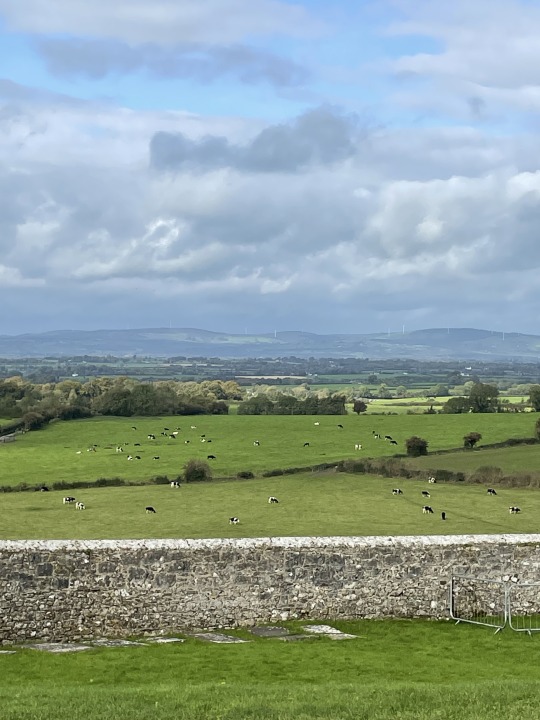
until we reached Barney Castle. Hands down, my favorite castle so far. There is magic afoot at Blarney Castle. No, we didn't pay to hang upside down and kiss the rock. I already talk enough, and Mickey just doesn't care. The gift of gab is not needed at our house. We did however roam the castle and the absolutely gorgeous grounds.

It's gorgeous from every side.




Wandering the woods around the castle was an adventure in itself, caves, waterfalls, "wishing steps", Druids Circle, and of course, a spot to leave offerings for the fairies. We left a coin.


The castle rooms were mostly empty, with signs letting us know what they'd been used for. This dungeons were spooky.

I loved every minute that we spent at Blarney Castle. It was special.
Back in the car and my hero got us safely to Killorglin where our Air BnB is located.

This is our base for exploring the Ring of Kerry and Dingle Peninsula. We have the cutest apartment, right in the center of town, surrounded by shops, pubs, and restaurants. This is what we see when we step out of our front door.

It's got everything we need, a full kitchen, comfy bed, hot shower, and it's quiet at night. Lovely. I'll share pic when I get home. I won't take up valuable post space with apartment photos.
After two days of beautiful weather, the reliable Irish rain moved in. Today was windy and rainy, but still such fun. We headed to Killarney, Ross Castle, Killarney National Park (think waterfalls and incredible views).
Ross Castle...




On a clear day you'd see the lake and mountains beyond.


Not gonna' lie, if I never climb another set of castle stairs I'll be fine. The rain eventually passed and we even got a rainbow.


We were back in Killorglin for a warm dinner (Mickey is hooked on Irish beef and Yorkshire pudding) and a relaxing evening. This little summary doesn't do anything justice, but it's a placeholder until I can get home and share the best of everything. My pictures lack the power of Mickey's beautiful shots, so I'll get my hands on those eventually. Tomorrow is more Ring of Kerry exploring, Saturday is Dingle Peninsula, and I'm excited to see it ALL. I'll be back to share more. Sending out loads of love. Stay safe, stay well. XOXO, Nancy
4 notes
·
View notes
Text

😋 Happy National Yorkshire Pudding Day! 😋
8 notes
·
View notes
Text
02/05/2023 is Lantern Festival 🏮🌏, World Nutella Day 🌏, National Shower with a Friend Day 🚿🇺🇲 (do the voices in my head count?), National Weatherpersons Day 🇺🇲, British Yorkshire Pudding Day 🇬🇧

#lantern festival#world nutella day#national shower with a friend day#national weatherpersons day#british yorkshire pudding day
0 notes
Text




Today is 13th of October.
Today is World Thrombosis Day, Yorkshire Pudding Day, National M&M Day, National No Bra Day.
1 note
·
View note
Text
Holidays and such for October 13, 2013

Columbus Tells a Lie Day. It was discovered that Columbus’ ships landed on the 13th of October 1492; he was persuaded by Dutch sailor Piet de Stuini (or DeStynie) to change it to the 12th in the logs because he said that the number 13 might frighten sailors and future investors away. An Italian study group called the Colombiani detected this change.
Fontinalia, Festival of Fontus, god of springs (Ancient Rome) day for the veneration of holy wells, springs & fountains
International Skeptics Day
National Yorkshire Pudding Day
2 notes
·
View notes